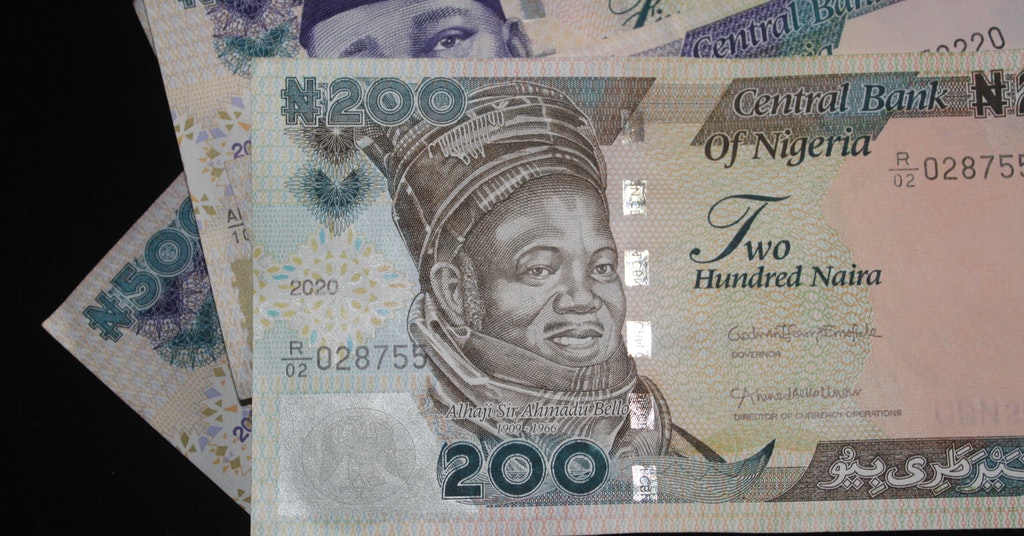The Naira has been under pressure since the beginning of the global COVID-19 pandemic

Naira’s new lows: was Goldman Sachs right? Source: pexels.com
Back in August, Goldman Sachs published a note – picked up by many newspapers – predicting that “a significant devaluation of the naira is likely in 12 to 18 months to stabilize Nigeria’s external accounts. An exchange rate of 500-550 per dollar should bring about the desired balance.”
At the time, many economists were skeptical of this prediction, citing economic recovery – both in Nigeria and globally – and an increase in crude oil demand. But, with the news this week that the value of the Naira on the parallel market hit a new low of NGN 484/USD 1, it is starting to look like Goldman Sach’s were right.
The Naira has been under pressure since the beginning of the global COVID-19 pandemic. In the first wave of the COVID-19 infection, global oil prices crashed – taking with them about 90% of Nigeria’s foreign exchange earnings. The CBN reacted swiftly to protect the Naira, loosening the official exchange rate to 360/1 against the dollar and suspending all sales of US Dollars to Bureau de Change operators.
While these measures offered some protection for Nigeria’s foreign reserves, they quickly led to a widening gap between the official exchange rate and the parallel market rate. In July, the CBN allowed a further devaluation of the Naira, down to 380/1 against the dollar. Despite this move, the gap in the official exchange rate and the black-market rate has only widened further, as businesses are forced to turn to black-market dealers. This, in turn, has triggered a wave of extreme inflation, with prices up 13.7% year-on-year.
In September, the Central Bank of Nigeria (CBN) resumed sales of USD to Bureau de Change’s in a desperate attempt to regain some balance. But, despite early gains, this has resulted in further depreciation of the parallel Naira. Many analysts have pointed to speculators and hoarders, a view shared by the President of the Association of Bureau De Change Operators of Nigeria (ABCON), Aminu Gwadebe:
While speculators are sure to be playing some part in this, the demand backlog for Forex is huge and this will only continue to put pressure on the exchange rate.
All of this plays out against the backdrop of a second wave of COVID-19 devastating the northern hemisphere. As further social restrictions unwind into economic havoc, the Nigerian government has turned its attention back to the price of crude oil.
Recent intimations by the OPEC+ group of oil producers that it will support oil prices in the medium-term has led to gains, with WTI trading at 42.52 USD per barrel as of 23 November. This welcome news has been intensified by the wave of positive vaccine news out of the USA and Europe, with many analysts pointing to a return to relative normality by late Spring 2021.
Many of the best Forex brokers in Nigeria report an increase in traders going long on the Naira. Chris Cammack, the head of the Nigerian Research Team at SchlossBrink AB, thinks it’s clear why:
Will Goldman Sachs be proved right? At this point, it is hard to tell. Nigeria’s economy is still suffering and, while oil prices are heading in the right direction, they are some way of pre-pandemic highs. But the outlook in the medium-term is good, and while Goldman Sachs may be proved right over the coming winter – any correct prediction will probably only be temporary.
SEE ALSO:









